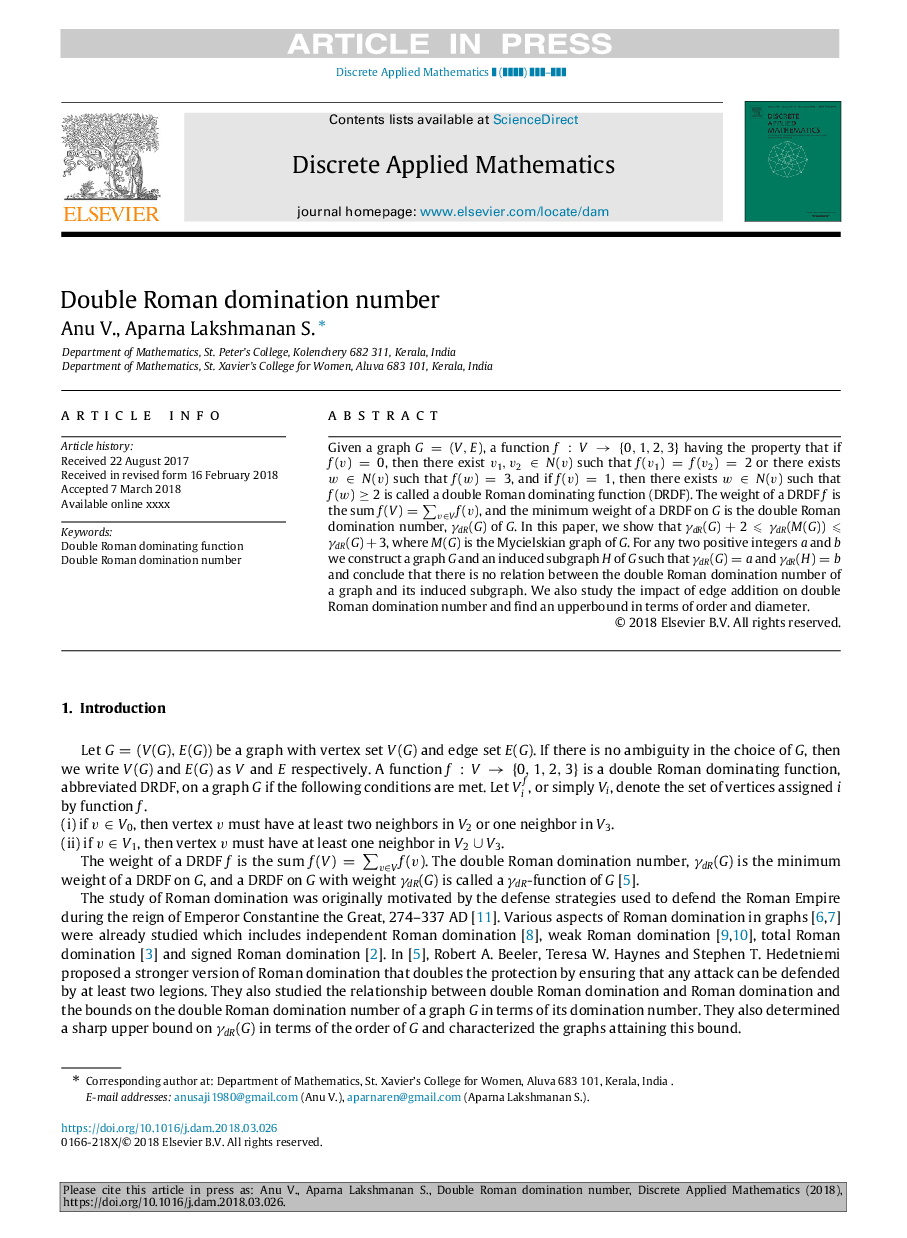| Article ID | Journal | Published Year | Pages | File Type |
|---|---|---|---|---|
| 6871165 | Discrete Applied Mathematics | 2018 | 7 Pages |
Abstract
Given a graph G=(V,E), a function f:Vâ{0,1,2,3} having the property that if f(v)=0, then there exist v1,v2âN(v) such that f(v1)=f(v2)=2 or there exists wâN(v) such that f(w)=3, and if f(v)=1, then there exists wâN(v) such that f(w)â¥2 is called a double Roman dominating function (DRDF). The weight of a DRDF f is the sum f(V)=âvâVf(v), and the minimum weight of a DRDF on G is the double Roman domination number, γdR(G) of G. In this paper, we show that γdR(G)+2⩽γdR(M(G))⩽γdR(G)+3, where M(G) is the Mycielskian graph of G. For any two positive integers a and b we construct a graph G and an induced subgraph H of G such that γdR(G)=a and γdR(H)=b and conclude that there is no relation between the double Roman domination number of a graph and its induced subgraph. We also study the impact of edge addition on double Roman domination number and find an upperbound in terms of order and diameter.
Related Topics
Physical Sciences and Engineering
Computer Science
Computational Theory and Mathematics
Authors
Anu V., Aparna Lakshmanan S.,
